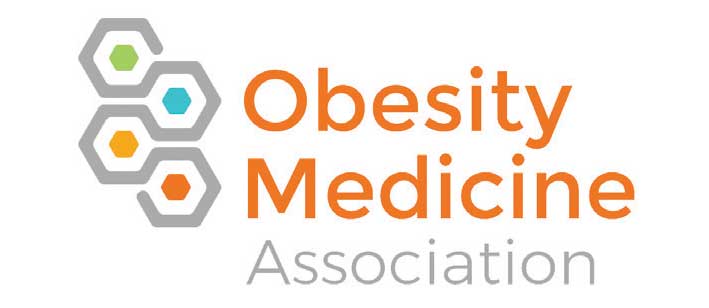Fundamentals of Obesity Treatment: OMA Extends a Virtual Primer for Practitioners

by Nicholas Pennings, DO, FOMA
Dr. Pennings is an associate professor and Chair of Family Medicine at Campbell University School of Osteopathic Medicine; director of the Campbell University Health Center; and executive director of clinical education for the Obesity Medicine Association.
Funding: No funding was provided.
Disclosures: The author has no conflicts of interest relevant to the contents of this article.
Bariatric Times. 2022;19(11):22.
In my experience, obesity is both the most common and the most undertreated disease, and the need for obesity education has never been greater for healthcare providers. That’s why the Obesity Medicine Association (OMA) is offering a virtual opportunity on November 18 to 19, 2022, to access its Fundamentals of Obesity Treatment Course,1 which aims to provide healthcare providers with a better understanding of obesity and increased confidence to treat patients with obesity. The course is a one-and-a-half-day interactive session that offers introductory education on the evidence-based approaches for evaluating, diagnosing, and treating obesity in a clinical setting. The content is designed for physicians, nurse practitioners, physician assistants, clinicians-in-training, and other healthcare providers who treat patients with obesity, which OMA defines as a chronic, relapsing, multifactorial, neurobehavioral disease, wherein an increase in body fat promotes adipose tissue dysfunction and abnormal fat mass physical forces, resulting in adverse metabolic, biomechanical, and psychosocial health consequences.
Language is an important tool to overcome the obesity stigma and make patients feel comfortable. For example, healthcare providers can avoid labeling individuals by using person-first language. Rather than referring to “the obese patient,” opt for “the patient with obesity.” Instead of “the patient is obese,” use the language “the patient has obesity.” Obesity is a disease, not an adjective, and should be referenced accordingly.
As the largest organization of clinicians dedicated to preventing, treating, and reversing the disease of obesity, OMA is uniquely qualified to provide clinicians with the knowledge and skills to treat obesity. Serving as a practical resource to help clinicians provide evidence-based obesity treatment based on OMA’s four pillars of clinical obesity treatment—nutrition, physical activity, behavior, and medication—OMA is the largest obesity medicine organization that offers an abundance of annual conferences and services, such the Academy, the Obesity Algorithm, webinars, and podcasts. In addition to these resources, OMA offers Obesity Pillars, an open-access, online-only journal dedicated to publishing evidence-based research for healthcare clinicians in the field of obesity medicine.
How is obesity affecting the health of my patients? How do I discuss obesity with my patients? How do I decide which obesity medication to use? How long do I treat patients with obesity? This course was created to help healthcare providers answer these questions by providing treatment strategies using OMA’s four treatment pillars and evaluating patients for obesity and related diseases using compassionate, nonstigmatizing communication.
Overcoming the obesity stigma. Effective physician-patient communication is essential for quality patient care, especially when treating obesity. In my experience, patients with obesity are often sensitive to comments about their weight. Judgment, criticism, blame, and admonishment of patients can demotivate them, lessen their willingness to carry out an obesity treatment plan, and result in the avoidance of continued care. That’s why it is critical for physicians to be aware of the tremendous impact of their words. While we see dozens of patients a day as healthcare providers, most patients only see a doctor a few times a year at most, making every visit meaningful and important.
Another layer of obesity treatment to be hyperaware of is the considerable amount of daily effort that lifestyle changes require. When patients are treated harshly, they can become frustrated and less likely to make the effort needed to succeed. If a patient feels uncomfortable in the office because they don’t fit in the chairs, the office scale does not go up to their weight, their gown is too small, the blood pressure cuff does not fit, or derogatory comments are made by staff or providers regarding weight, the medical office visit can be a traumatic experience and impede treatment efforts.
Leveraging evidence-based obesity treatment approaches. While obesity is a seriously complex disease that continues to grow in prevalence, there is good news, as an extensive body of scientific knowledge exists and researchers have developed a detailed understanding of the pathophysiology of obesity. Obesity science provides in-depth insights into inherent appetite regulation mechanisms that make obesity treatment so challenging, and interesting! Recognizing the benefits and limitations of nutrition and physical activity interventions, as well the behavioral challenges of weight loss, are essential parts of obesity care. An exciting area of obesity treatment is the development of new and emerging pharmacologic agents and surgical procedures available for obesity treatment. Treatment options have expanded dramatically over the past decade, leading us into a future where obesity care becomes a core part of all clinical practice.
OMA’s Fundamentals of Obesity Treatment Course shares this extensive knowledge in a digestible way that provides a deep foundation of obesity medicine education. It also offers case-based discussions that allow participants to apply the session information to patient cases, each one focusing on a treatment pillar of obesity. Knowledge is critical, but gaining the skills needed to apply that information toward the treatment of patients with obesity offers an invaluable educational experience.
To learn more about the Fundamentals of Obesity Treatment Course and register, visit https://obesitymedicine.org/conferences/fundamentals-of-obesity-treatment.
References
- Obesity Medicine Association. Fundamentals of obesity treatment virtual course. https://obesitymedicine.org/conferences/fundamentals-of-obesity-treatment/?utm_campaign=pr&utm_source=bariatric_times_oct22&utm_medium=article. Accessed 12 Oct 2022.
Category: Medical Methods in Obesity Treatment, Past Articles




